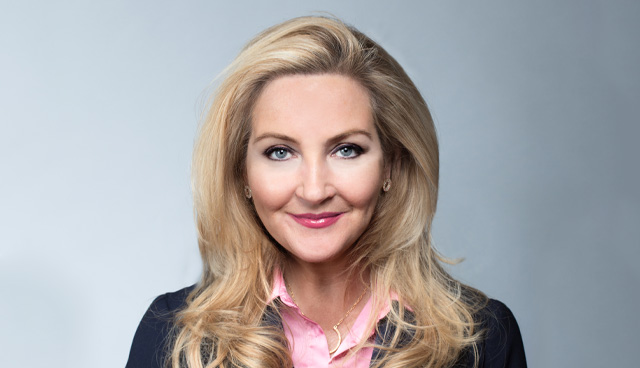The future of cross-border EU funding

The Special EU Programmes Body (SEUPB) is a north south implementation body set up under the Good Friday Agreement with statutory responsibility for managing the EU cross-border funding programmes, PEACE and INTERREG.
For over 20 years, these cross-border programmes have provided over €3.3 billion worth of funding to tens of thousands of different projects and initiatives which have supported the ongoing peace process and helped enhance cross-border co-operation.
Reporting to the North South Ministerial Council, the SEUPB is sponsored by the Department of Public Expenditure and Reform in Ireland and the Department of Finance in Northern Ireland and also reports to the European Commission. It has the statutory responsibility for the development and implementation of the new cross-border EU funding programme called PEACE PLUS from 2021–2027.
PEACE PLUS will build on the excellent work of the previous PEACE and INTERREG Programmes, supporting similar, but also new and exciting projects and activities. It has been designed following a comprehensive cross-border stakeholder engagement process, which commenced in 2019 with discussions with government departments, and involved 16 public consultation events in 2020. These events were attended by over 1,000 people with over 300 additional surveys submitted.
This engagement process, alongside a comprehensive socio-economic study of the area, captured the priorities and views of government departments in Ireland and Northern Ireland, along with statutory agencies, business representatives, NGOs, universities, research institutes and the community/voluntary sector, to understand their views and priorities for the future of cross-border funding.
The SEUPB is currently engaged in a statutory public consultation on the draft content of the new Programme before its final approval by the European Commission, the Irish Government, and the Northern Ireland Executive. PEACE PLUS will have a very significant budget, totalling approximately €1 billion, and is designed to support activities that contribute to peace and prosperity within Northern Ireland, the six border counties (Cavan, Donegal, Leitrim, Louth, Monaghan, and Sligo), and can also include partners from across these two Islands.
Outlining the key ethos of the proposed new Programme, Gina McIntyre, Chief Executive of the SEUPB said: “PEACE PLUS will help to address many of the long-standing social and economic challenges which have, and continue to, impact on communities, particularly those in rural border areas as well as ongoing challenges that exist in urban settings.
“It will support actions designed to embed peace, while also recognising the devastating impact of Covid-19 on the economy and indeed society, and the changed landscape, opportunities and challenges, associated with the UK exit from the EU. I am extremely grateful to all of the people who have already shared their views with us, and who have contributed to help us develop the Programme’s content,” she continued.
Six key themes have been developed for PEACE PLUS, which will also contribute to the European Green Deal and support the larger green recovery process, on both sides of the border. These themes have been created following a detailed socio-economic profile of the region and each one has its own unique set of investment areas.
Theme 1: Building peaceful and thriving communities is designed to empower local community partnerships, through the delivery of co-designed local community PEACE Action Plans with Councils across Northern Ireland and the border counties of Ireland. It will help to build positive relations where cultural diversity is celebrated and also re-imagine communities through the provision of new shared spaces and services.
Theme 2: Delivering economic development and transition will enhance the growth and competitiveness of SMEs in order to help create new jobs in a post-Brexit landscape. It can support R&I development in key growth sectors, address key skills gaps and also invest in a Smart Towns and Villages Development Programme.
Theme 3: Empowering and investing in our young people can support shared education and potential integrated education activities, develop vulnerable young people (aged 14–24) as well as create a youth mental health and well-being initiative to improve understanding of mental health issues and enhance emotional resilience.

Theme 4: Healthy and inclusive communities would build upon and create new cross-border approaches to improve health and social care for citizens. It can support rural regeneration and social inclusion measures and will also develop the capacity for services that meet the needs and demands of victims and survivors of the conflict.
Theme 5: Supporting a sustainable future is designed to help protect habitats and priority species, our shared marine and cross-border coastal environment, as well as improve water quality in Lough Erne, Lough Melvin, and Donegal Bay. It will also invest in a geothermal energy demonstration project and cross-border rail infrastructure improvements.
Theme 6: Building and embedding partnership and collaboration will focus on enabling joint development and management strategies that can identify solutions to reduce obstacles to greater cross-border cooperation at all levels.
“The programme area for PEACE PLUS includes Northern Ireland and the border counties of Ireland, however it can also support what is termed ‘functional areas’. This allows for organisations and institutions not based in the core programme area to get involved in projects, by linking with partners within the core programme area.
“There are many fantastic examples of these partnerships in the current PEACE and INTERREG Programmes, and we wish to ensure that organisations based outside of the programme area, but which can naturally link with organisations within the area and deliver services, are aware of this opportunity and begin to prepare in advance of funding calls opening towards the end of the year, and in 2022,” she continued.
An example of such a project, which is currently underway, involves three leading universities and institutes, namely Dublin City University, University College Dublin, and the Dundalk Institute of Technology, who are key partners in the delivery of the highly innovative and worthwhile Eastern Corridor Medical Engineering (ECME) project. This is an €8.1 million EU INTERREG VA-funded initiative that has created a new cross-border centre of excellence within the highly specialised field of cardiovascular medicine.
It is helping to transform current heart disease care by undertaking ‘big data’ research into people suffering from a range of cardiovascular conditions, as well as the development of smart wearable monitoring technology and enhanced diagnostic equipment. In response to Covid-19, this project also made special grant awards available to some creative ‘mini-projects’, that were involved in the production of PPE and better diagnostics to help in the fight against the pandemic.
A number of charities have also been able to create new working partnerships with other organisations through involvement in the PEACE IV Programme.
This includes the Changing Lives Initiative, led by Dublin-based charity Archways. The community-focused project is also working with various partners in Northern Ireland and Scotland on a specialist intervention programme for families with children experiencing ADHD.
These are just two examples of the types of cross-border work which is being supported at the moment. For more information on the SEUPB and the new PEACE PLUS Programme, please go to www.seupb.eu/PEACEPLUS






